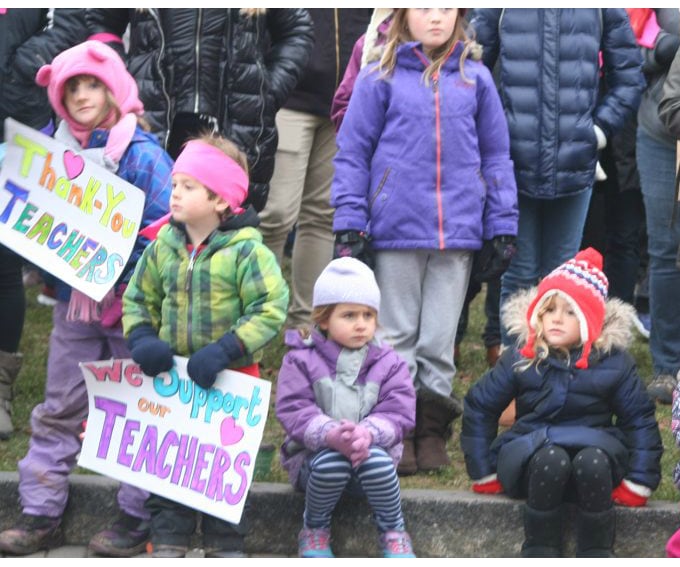Much has been written by union members, teachers, parents, and school board representatives on the Glaze Report, yet little has been said about the removal of diversity and marginalized voices from local decision making.

A rigid timeline is being adhered to by our government to pass legislation needed to dissolve elected English school boards in Nova Scotia. Unfortunately, no consultation with those most impacted nor any public participation in that decision took place. A hasty verdict suggests evidence and critical perspectives may not have been fully considered in this decision-making process.
In October 2016, thousands of Nova Scotians went to the polls to express their right to elect school board members. Since then, citizens have called upon those elected representatives to assist them with school boundary concerns, busing, school closures, racism, bullying, and access for youth to mental health services in public schools.
Fast forward 17 months, and we now see the provincial government taking immediate action by following Glaze Report recommendations to dissolve English school boards. To make that a reality, the government will need to delete mention of school boards from the Nova Scotia Municipal Elections Act and the Education Act. The government’s approach to remove elected members and replace them with already busy and overworked volunteers neglects to address the unintended consequences of stripping elected officials of their fiduciary duties, including the significant challenges this will present for women entering politics, especially from rural and marginalized communities.
The long, sordid history of racism and sexism in Nova Scotia continues to simmer with this oppressive decision. Women and African Nova Scotians will no longer have a seat at the local decision-making table. The 2017 United Nations report on the African Canadian experience slammed the provincial government’s treatment of African Nova Scotians citing “educational inequities” and “deplorable” socioeconomic conditions. In addition to the evidence we already have, the Commission on Effective Electoral Representation of Acadian and African Nova Scotians just published its report outlining the importance of local representation in addressing the needs of African Nova Scotians:
“Education is the key to advancement in society, so there is a strong desire to make schools more pertinent to young African Nova Scotians,” states the recent provincial report, Toward More Effective Representation For Acadian and African Nova Scotians. It continues, “a special measure on school boards to provide African Nova Scotian perspective is consistent with common practice and long-standing in the field of education.”
For women in rural Nova Scotia the move to end elected school boards is repressive and lacks consideration of the reality in small coastal and rural communities. Removing local decision making from elected representatives and handing it to volunteers in communities with high rates of outmigration, aging populations, and commuters with little time to volunteer, is not a sign of a progressive society that values and involves marginalized voices.
It’s challenging enough for women to run for politics, hindered by sexist stereotypes and high rates of violence against women. The obliteration of an entire level of electoral representation currently dominated by women, without consultation with those women, demonstrates the government no longer wants their voices included in discussions about them, with them.
On the eve of the 100th anniversary of some women’s right to vote in Nova Scotia, the removal of 57 women from a local, non-partisan level of government where women are above parity at 55%, cuts deep to the core of women’s struggle for equality. As witnessed by the powerful “Me Too” movement, the systemic and systematic sexism, misogyny, and harassment faced by women in this province does not go unchallenged, but it appears to be unnoticed by this government.
There is little doubt that change is needed in the education system, but we should all be concerned about losing 57 women from their democratically elected positions. Perhaps a little shift in perspective by decision makers could transform the current anxiety-ridden climate into a more inclusive, collaborative relationship where diverse voices are welcomed and encouraged to participate in the problem-solving process.
Pamela Lovelace volunteers with Equal Voice Nova Scotia, a bilingual national multi-partisan organization dedicated to electing more women to government. She works at the School of Social Work at Dalhousie University and graduates this spring with her Master’s degree in Education from Mount Saint Vincent University.
If you can, please support the Nova Scotia Advocate so that it can continue to cover issues such as poverty, racism, exclusion, workers’ rights and the environment in Nova Scotia. A paywall is not an option, since it would exclude many readers who don’t have any disposable income at all. We rely entirely on one-time donations and a tiny but mighty group of dedicated monthly sustainers.




Just a general “attaboy” for all the great work all of you at the Advocate are doing. Thanks. Keep it up.